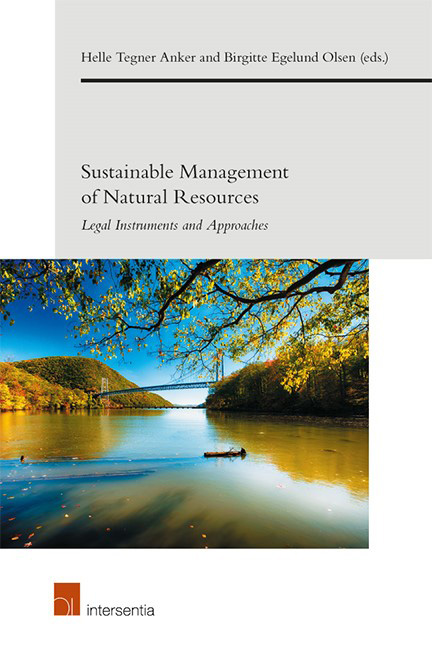Book contents
- Frontmatter
- Contents
- PART I INTRODUCTION
- Chapter 1 Legal Approaches to Sustainable Management of Natural Resources
- PART II SUSTAINABILITY IN EU AND INTERNATIONAL LAW
- PART III SUSTAINABLE MANAGEMENT OF WASTE
- PART IV ENVIRONMENTAL AND CLIMATE LITIGATION
- PART V ECOSYSTEM APPROACHES AND ADAPTIVE MANAGEMENT
- PART VI SUSTAINABLE RESOURCE MANAGEMENT: SPECIFIC ISSUES 193
Chapter 1 - Legal Approaches to Sustainable Management of Natural Resources
from PART I - INTRODUCTION
Published online by Cambridge University Press: 31 January 2019
- Frontmatter
- Contents
- PART I INTRODUCTION
- Chapter 1 Legal Approaches to Sustainable Management of Natural Resources
- PART II SUSTAINABILITY IN EU AND INTERNATIONAL LAW
- PART III SUSTAINABLE MANAGEMENT OF WASTE
- PART IV ENVIRONMENTAL AND CLIMATE LITIGATION
- PART V ECOSYSTEM APPROACHES AND ADAPTIVE MANAGEMENT
- PART VI SUSTAINABLE RESOURCE MANAGEMENT: SPECIFIC ISSUES 193
Summary
Sustainable management of natural resources is a key concern at all levels of society, on a global as well as a local scale. Natural resources are here understood in broad terms encompassing biodiversity, water, air and soil as well as raw materials. Usually, waste is not considered a natural resource; however, in a sustainable management of natural resources, the recycling of waste as secondary raw materials is pivotal and accordingly included in the present understanding of natural resources. The fifth European Environmental Law Forum Conference in Copenhagen in late summer 2017 aimed to highlight key issues regarding legal instruments and approaches and their role in promoting sustainable management of natural resources. This book offers a selection of peer reviewed contributions presented at the conference.
A recurring theme in discussions on sustainability is to strike a balance between environmental, social and economic interests based on the 1987 Brundtland Report's definition of sustainable development as ‘development that meets the needs of the present without compromising the ability of future generations to meet their own needs’. It was noted in the Brundtland Report that ‘sustainable development requires that the adverse impacts on the quality of air, water, and other natural elements are minimized so as to sustain the ecosystem's overall integrity.’ Thus, it has been argued that the biosphere sets an ultimate bottom-line for sustainable development expressed as strong sustainability or ecological sustainability implying that development must be based on ecological sustainability in order to meet the needs of present and future generations. Calls have been made for ecological sustainability to be the central reference point of environmental law, and that the sustainability of ecosystems should become one of the foundational principles of law everywhere. Further, humans and natural ecosystems are closely interlinked and it must be kept in mind that ecosystems are dynamic and unpredictable. Social-ecological resilience theory has argued that governance systems must be adaptive and based on participatory, collaborative decision-making.
The incorporation of such notions of ecological sustainability and socialecological resilience into (environmental) policy and law faces many challenges, not least considering a continued quest for (economic) development in the aftermaths of the financial crisis. Furthermore, legal instruments and approaches may in different ways promote sustainable management of natural resources.
- Type
- Chapter
- Information
- Sustainable Management of Natural ResourcesLegal Instruments and Approaches, pp. 3 - 10Publisher: IntersentiaPrint publication year: 2018



